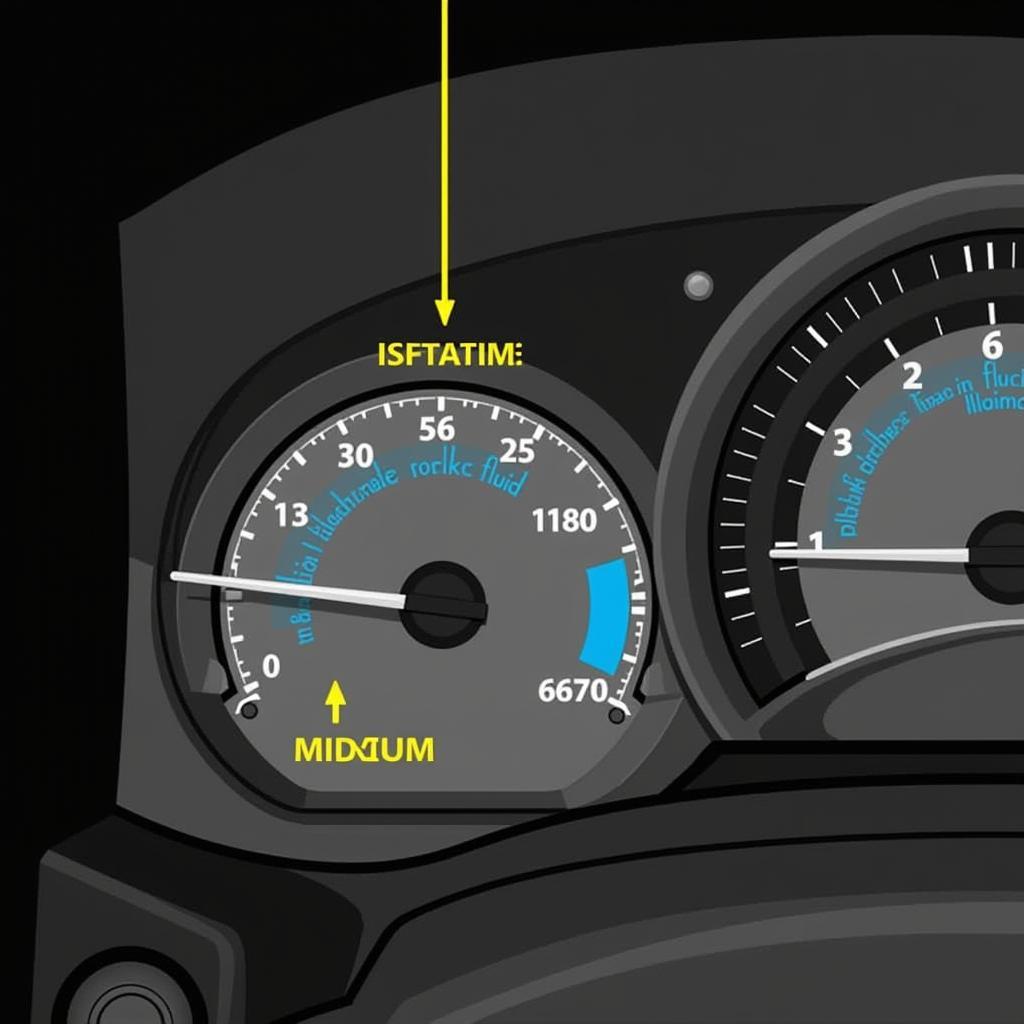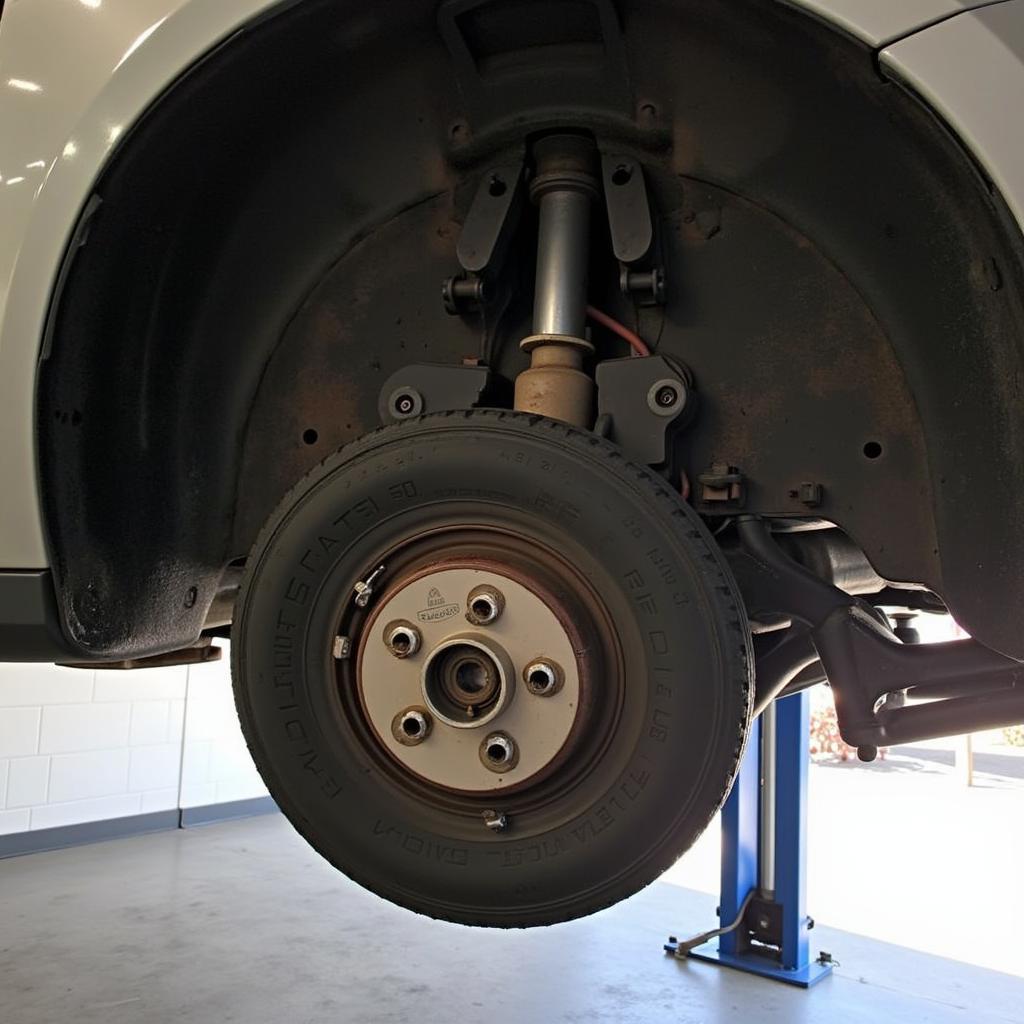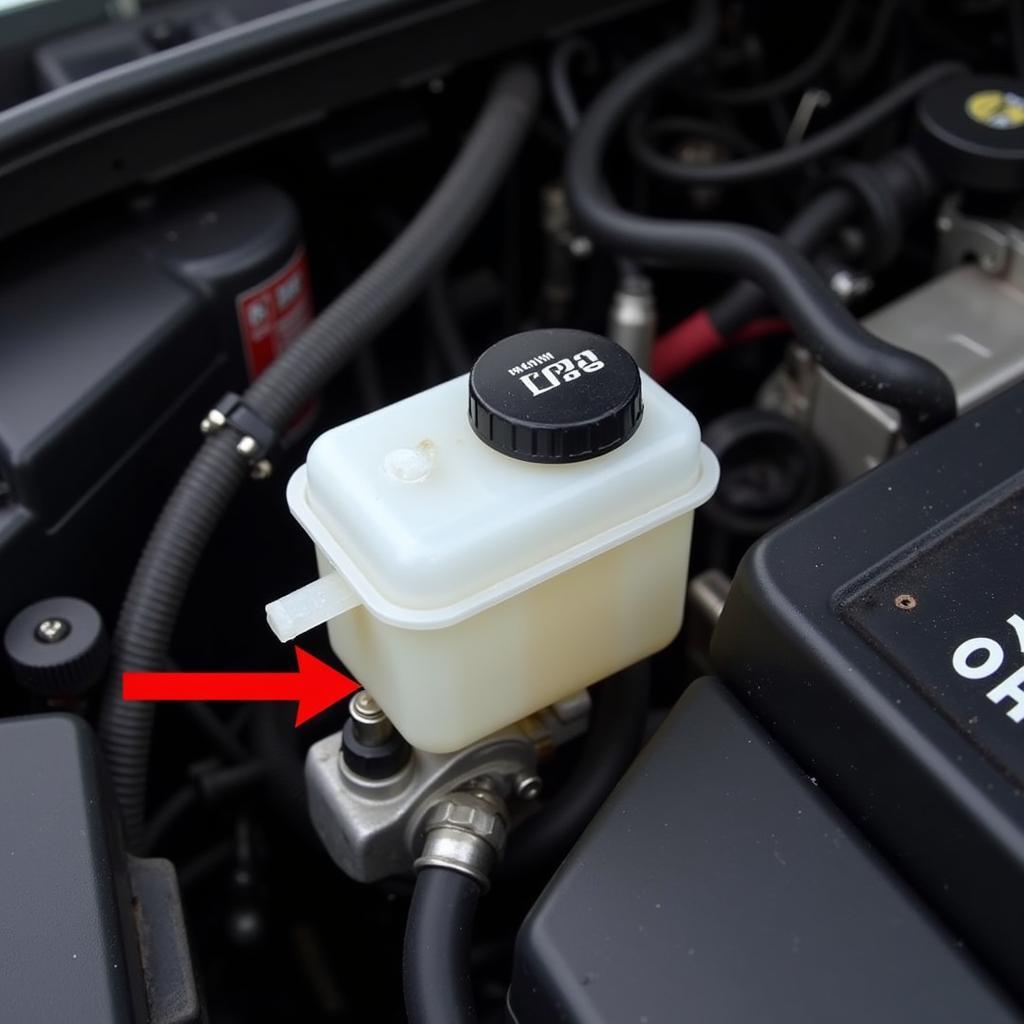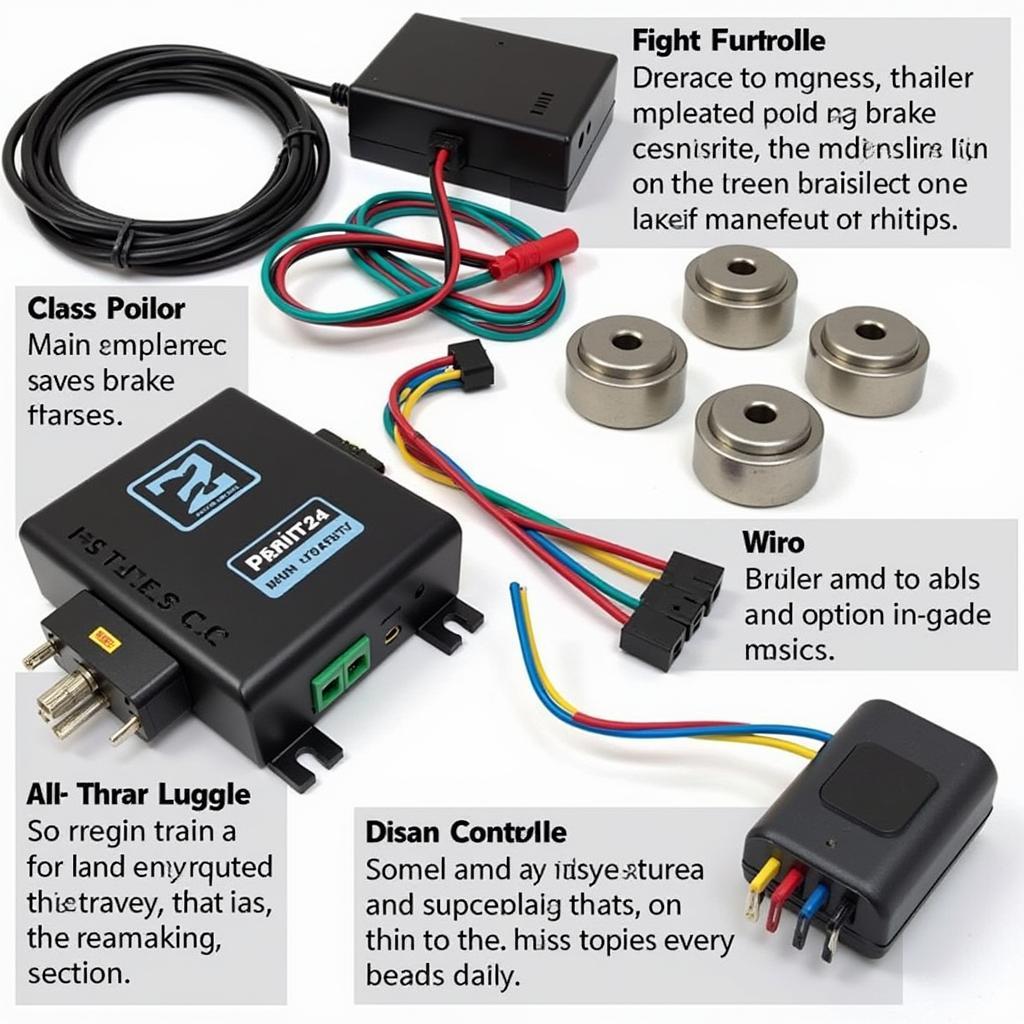Experiencing a sudden illumination of your Ford Focus’s ABS and brake warning lights can be a nerve-wracking experience. These lights are your car’s way of signaling a potential problem with your braking system, demanding your immediate attention. While it can be unnerving, understanding the common causes and solutions can equip you to handle the situation calmly and effectively. This guide will walk you through the possible reasons behind these warning lights, potential solutions, and when to call in professional help.
Deciphering the Warning Lights: What’s Triggering Them?
The ABS (Anti-lock Braking System) and brake warning lights are crucial components of your Ford Focus’s safety system. When illuminated simultaneously, they indicate a potential malfunction that could compromise your car’s ability to brake efficiently. Let’s delve into the common culprits:
1. Low Brake Fluid: The Heart of Your Braking System
Your Ford Focus’s braking system relies on hydraulic pressure generated by brake fluid to function optimally. Low brake fluid levels can be a major cause for concern.
What to do:
- Check Your Brake Fluid Level: Carefully open the brake fluid reservoir (refer to your owner’s manual for its location) and inspect the fluid level.
- Add Brake Fluid (If Necessary): If the fluid level is low, carefully top it off with the recommended brake fluid type specified in your owner’s manual.
- Look for Leaks: If you notice consistently low brake fluid levels, it’s crucial to inspect for leaks in the brake lines, hoses, calipers, or wheel cylinders.
 Ford Focus Low Brake Fluid Warning
Ford Focus Low Brake Fluid Warning
2. Worn Brake Pads: The Unsung Heroes
Your Ford Focus’s brake pads endure significant wear and tear, being the first point of contact during braking. Over time, they thin out, triggering the warning lights.
What to do:
- Inspect Your Brake Pads: If you’re comfortable with basic car maintenance, you can visually inspect your brake pads. If they appear significantly thin, it’s time for a replacement.
- Professional Inspection: For a thorough assessment, consult a qualified mechanic to inspect your brake pads and rotors. They can determine if a replacement is necessary.
3. Faulty ABS Sensors: The Brains Behind the Brawn
ABS sensors play a crucial role in preventing wheel lockup during sudden braking. A malfunctioning sensor can disrupt the entire system.
What to do:
- Diagnostic Scan: A professional diagnostic scan can pinpoint the problematic ABS sensor.
- Sensor Replacement: A mechanic can replace the faulty sensor and ensure its proper calibration for optimal ABS function.
4. Issues with the ABS Module: The Control Center
The ABS module is the brain coordinating the Anti-lock Braking System. An internal fault within the module can trigger warning lights.
What to do:
- Professional Diagnosis: A mechanic with specialized diagnostic tools can assess the ABS module for faults.
- Module Repair or Replacement: Depending on the severity of the issue, the module might require repair or replacement.
Beyond the Basics: Other Potential Culprits
While the above issues are the most common culprits behind the ABS and brake warning lights in a Ford Focus, other potential problems can exist:
- Blown Fuse: A blown fuse in the ABS system can disrupt its functionality.
- Damaged Wiring: Worn or damaged wiring in the ABS system can lead to communication errors.
- Faulty Brake Master Cylinder: A malfunctioning brake master cylinder can impact brake fluid pressure and trigger warning lights.
When to Seek Professional Help
If you’re unsure about the cause of the warning lights or lack the expertise for troubleshooting, seeking professional help is crucial. A qualified mechanic possesses the experience, tools, and knowledge to diagnose and repair complex braking system issues accurately.
 Ford Focus ABS Sensor Location
Ford Focus ABS Sensor Location
“Addressing brake issues promptly is paramount for your safety,” says John Miller, a seasoned automotive engineer with over 20 years of experience. “Don’t hesitate to seek professional help if you suspect any malfunctioning in your Ford Focus’s braking system.”
Preventing Future Brake Light Surprises: Maintenance Matters
Regular maintenance is key to preventing unexpected illumination of your Ford Focus’s ABS and brake warning lights. Follow these preventive measures to ensure optimal braking performance and your safety on the road:
- Regular Brake Fluid Checks: Inspect your brake fluid level at least once a month and top it off as needed.
- Timely Brake Pad Replacements: Adhere to your Ford Focus’s recommended brake pad replacement schedule or replace them sooner if you notice signs of wear.
- Annual Brake System Inspections: Schedule an annual brake system inspection by a qualified mechanic.
FAQs: Ford Focus ABS and Brake Warning Lights
1. Can I still drive my Ford Focus if the ABS and brake warning lights are on?
It’s strongly advised against driving your Ford Focus with these warning lights illuminated. A compromised braking system poses a serious safety risk.
2. How much does it cost to fix ABS and brake light issues in a Ford Focus?
Repair costs vary depending on the underlying issue. A simple brake fluid top-up might cost a few dollars, while a faulty ABS module replacement can cost significantly more.
3. Are aftermarket brake parts a good option for my Ford Focus?
While aftermarket brake parts might seem cost-effective, opting for genuine Ford parts is recommended for optimal performance, compatibility, and longevity.
4. How long can I drive with worn brake pads in my Ford Focus?
Driving with worn brake pads is unsafe and can damage your rotors, leading to more expensive repairs. Replace worn brake pads immediately.
5. Can I check the ABS system myself in my Ford Focus?
While some basic checks are possible, a professional diagnosis is recommended for accurate ABS system assessment and repair.
Your Ford Focus: Safety First
Remember, your Ford Focus’s ABS and brake warning lights are crucial safety indicators. Addressing any underlying issues promptly is vital for your safety and those sharing the road with you. Don’t hesitate to seek professional help when needed. By staying proactive with maintenance and addressing issues promptly, you contribute to a safer and more enjoyable driving experience.


